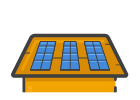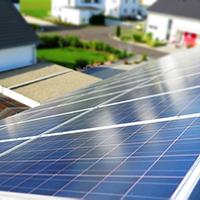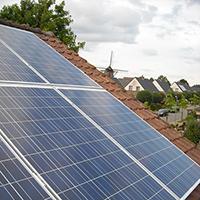DECC announces 2016 Feed-in Tariff rate at 4.39p/kWh
On 17 December 2015 the Department of Energy and Climate Change (DECC) published the results of their consultation on Feed-in Tariff payments in 2016. Domestic installations which are up to 10kW in size will be eligible to receive a generation tariff of 4.39p/kWh when new rates come into effect on 8 February 2016.
The outcome of the consultation was eagerly awaited by the solar industry due to its initial proposal to slash Feed-in Tariffs by up to 87%. Over 55,000 responses were received and the consultation was viewed as controversial, with strong reactions given by the industry and supporters of renewable energy.
The generation tariff was not the only part of the Feed-in Tariff outlined for change in the consultation. DECC also proposed changing the indexation link from the Retail Price Index (RPI) to Consumer Price Index (CPI), however this has not been taken forward and the indexation link will remain with the RPI.
Whilst the generation element of the Feed-in Tariff is affected, the export tariff will not see any dramatic changes and looks set to remain at the current rate of 4.85p/kWh. The below includes the first set of new tariffs and these will continue to see the quarterly digression as usual, up until the closure of the scheme in 2019.
The new Feed-in Tariff rates from 8 February 2016
| Capacity | FiT Rate (p/kWh) |
|---|---|
| 0-10kW | 4.39 |
| 10-50kW | 4.59 |
| 50-250kW | 2.70 |
| 250kW-1000kW | 2.27 |
| >1MW | 0.87 |
| Stand alone | 0.87 |
The current Feed-in Tariff of 12.47pp/kWh (based on a domestic 4kWp system) is set to end on 31 December 2015, but the new tariff will not come into effect until the 8 February 2016 due to the Government's Christmas recess. During this time there will be a 4 week pause, from 15 January to 8 February 2016 which will see no new installations accredited for the Feed-in Tariff, apart from those with pre-accreditation granted before 1 October 2015. Whilst you will still be able to apply for the Feed-in Tariff during this time, your application will be placed into a queue - these will receive the new tariffs and be affected by the deployment caps discussed below.
Deployment caps will also come into play in 2016, with the primary purpose of limiting the Feed-in Tariff scheme to a maximum overall budget of £100 million. This is enforced via deployment caps for degression bands which will work independently of one another – so a cap could be hit for one degression and not another. Once a cap is reached no further installations will be eligible for the generation tariff in that quarter.
DECC will use data from the MCS database to determine when the cap is reached, so the timing of the issue of an MCS certification for a system will be critical.. Installations that miss out on a cap could either be rejected and required to re-submit at the start of the next cap period; or continue to be processed and receive the tariff of the cap they qualify under.
There's still time to get the current Feed-in Tariff rate of 12.47pp/kWh if you have your system installed and accredited before 31 December 2015. You can get free quotes to compare from MCS accredited installers using our short online form.
Find local, MSC certified Solar Installers
Start your quote
Find local, MSC certified Solar Installers
















